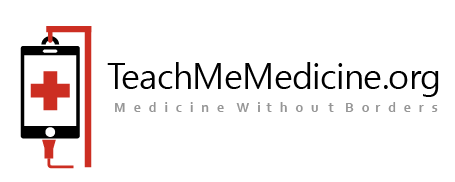Hematology and Oncology Curriculum – Students will have to learn and be tested on the following information laid out in the curriculum*. All information can be accessed in the resources and lecture videos listed below the curriculum.
Course Objectives
General Overview
The clinical experience should allow the student to gain additional knowledge and experience in the following areas:
- morphology, physiology, and biochemistry of blood, bone marrow, lymphatic tissue and spleen
- etiology, epidemiology, natural history, diagnosis, pathology, staging and management of awide variety of neoplastic and hematologic disorders
- chemotherapeutic drugs, growth factors and their mechanisms of action, clinical indications,and limitations, assessment of tumor imaging by CT, MRI and nuclear imaging techniques
- multiagent chemotherapy protocols and combined modality therapies
- management and care of in-dwelling venous catheters
- management of neutropenia and immunocompromised patient
- hematologic and oncologic effects of HIV
- pain management, palliative care and psychosocial management of patients with hematologicand neoplastic disordersTechnical and Interpretation Skills
Students should be able to recommend when to order diagnostic tests and be able to interpret the following laboratory test results:
- Iron studies
- Reticulocyte count
- Red cell indices
- Complete blood count w/ differential
- Serum B12 and folate, homocysteine, methylmalonic acid
- Haptoglobin
- LDH
- Schilling test
- Hemoglobin electrophoresis
- Blood smears
- Various tumor markers
- Bone marrow biopsy
General Clinical Core Competencies
HEMATOLOGY-ONCOLOGY DISEASES AND TOPICS
The student is responsible for reviewing these topics during the hematology-oncology elective.
- Hematology
- Oncology
- Bleeding Disorders
- Clotting Disorders
- Breast Health
- Colon Cancer
- Leukemia
- Lung Cancer
- Non-Hodgkin’s Lymphoma
- Prostate Cancer
- Palliative Care
- Anemia
- Lymphadenopathy
Additional reading in the following areas is also recommended:
- Prevention and Early Detection of Cancer
- Breast Cancer
- Neoplasms of the Lung
- Colon Cancer
- Pancreatic Cancer
- Coagulation Disorders
- Antiplatelet, Anticoagulant and Fibrinolytic Drugs
- Anemias
- Myeloproliferative Diseases
- Myeloid Leukemias
- Malignancies of Lymphoid Cells
- Plasma Cell Disorders
- Transfusion Therapy
Implementation
Course objectives are to be accomplished in a College affiliated hospital or clinical facility, under supervision. Course objectives should be covered during the rotation to assure adequate student preparation for board examinations and clinical practice. The use of diverse methods appropriate to the individual and the clinical site are encouraged, but patient-centered teaching is optimal.
Didactic methods to achieve required objectives include:
- Reading assignments
- Lectures
- Computer-assisted programs (if available)
- Student attendance at/participation in formal clinical presentations by medical faculty
- Clinically oriented teaching methods may include:
- Assignment of limited co-management responsibilities under supervision
- Participation in clinic visits, daily patient rounds and conferences
- Supervised and critiqued clinic work-ups of patients admitted to the service
- Assigned, case-oriented reading case presentations
*Hematology and Oncology Curriculum – This curriculum is a curriculum formed by the Des Moines University School of Osteopathic Medicine.
